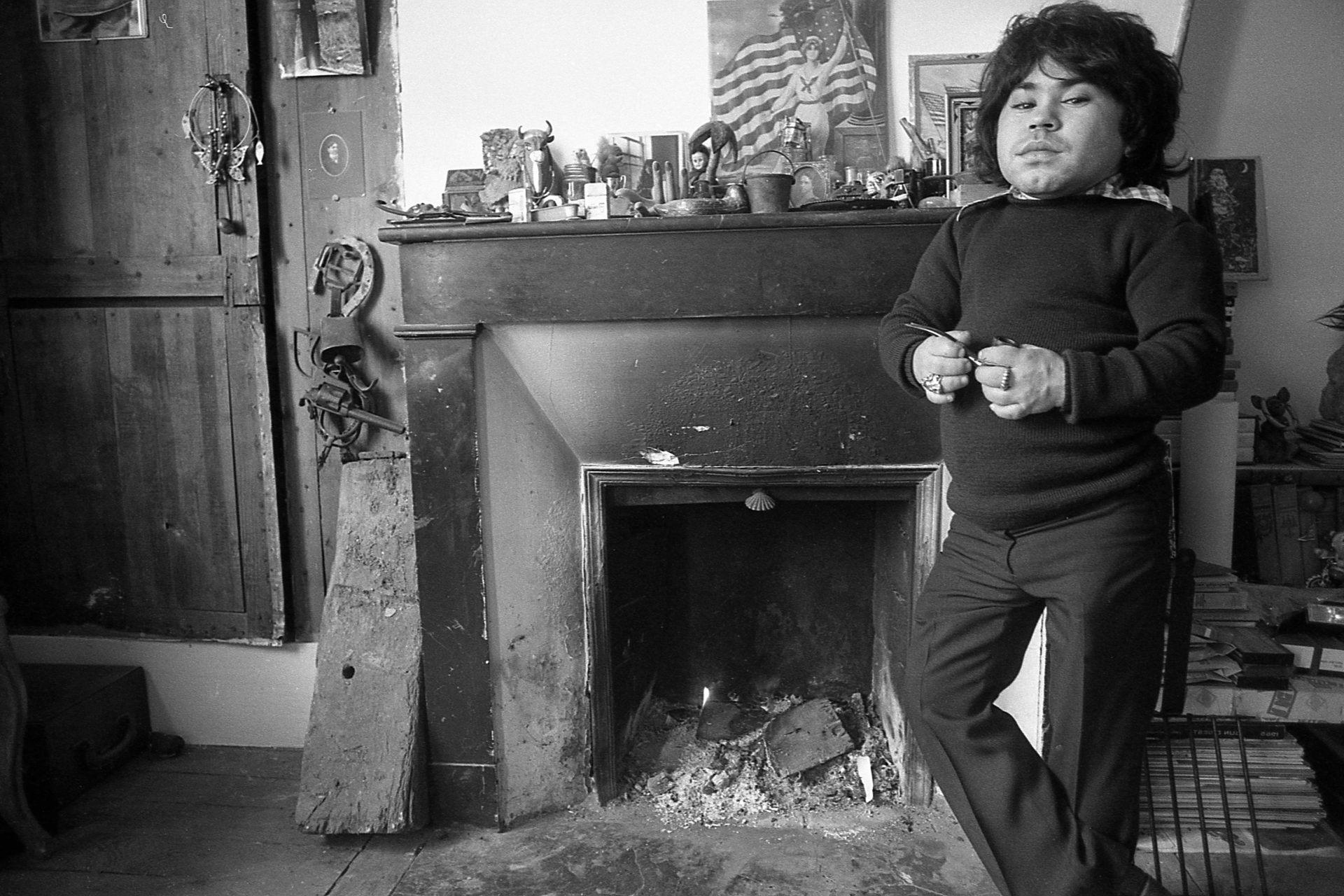Hervé Villechaize, in a tuxedo, walks across a tiled floor and looks anxiously past the camera. He stops, points upwards and cries, “The plain! The plain!”
Then he points past the other side of the camera. “No, no, no,” he barks. “Cinnamon! Cinnamon!”.
It’s 1992 and the French actor is reprising his famous role as Tattoo from the television series Fantasy Island in a commercial for Dunkin’ Donuts. He’s in a branch of the outlet and apparently unable to make up his mind which variety he wants. It was a decade since he’d last played Tattoo but here he was, adapting his famous, heavily-accented catchphrase to sell sugary snacks.
Villechaize was 49 years old, greying at the temples, his dark eyes glassy and expressionless as he looked past a camera positioned specifically to emphasise his small stature. If he really was caught in a whirl of joyful indecision at the prospect of doughnuts, it certainly didn’t show.
Within a year he was dead. In the early hours of September 4, 1993, Hervé Villechaize walked into the garden of his home in North Hollywood, sat down against a wall and put two pillows against his chest to muffle the sound he knew was coming. Then he raised a pistol to the pillows and pulled the trigger.
In the note he left for his partner Kathy Self, he cited constant physical pain as the catalyst for his suicide. Although he never grew beyond three feet ten inches in height, his internal organs had grown to the dimensions of a person much taller, putting his body under huge pressure.
Villechaize took 20 pills each day to alleviate the symptoms, but among other debilitating effects, his condition meant that for the last few years of his life he could only sleep in a kneeling position beside his bed with only his head on the mattress. Lying flat would have crushed his lungs.
There is a tragic legacy of high-profile actors with dwarfism taking their own lives in middle age. Three years before Villechaize died, David Rappaport, who starred in Time Bandits, had also shot himself in the chest after a long struggle with depression. Verne Troyer, best known for playing Mini-Me in the Austin Powers franchise, drank himself to death in 2018, an act the coroner declared to be suicide. He and Rappaport were 49, Villechaize 50.
For many people with dwarfism showbusiness can provide a good living, but for actors the range of roles will always be limited and, for the most part, demeaning.
In recent years Peter Dinklage, who played Villechaize in a dramatization of the actor’s final weeks in the 2018 film My Dinner With Hervé, has proved to be an exception but in Villechaize’s day actors of his physical stature were always destined to just be the funny little guy. Actors of physical disability were rare on-screen during Villechaize’s time in the spotlight making him unusual and, by extension, an outsider.
While Villechaize had never really intended to be an actor he did always seek to exploit his natural creativity. The son of leading Parisian surgeon and wartime resistance hero André Villechaize, Hervé spent much of his childhood and youth undergoing brutal treatments at clinics in England, Germany and the US in an effort to cure his condition, including the injection of sheep marrow into his spine. He found little respite outside medical institutions: he was bullied mercilessly at school and suffered ridicule and physical abuse on the streets of Paris.
Art became his outlet and his refuge. Villechaize proved to be a painter of such prodigious talent he was accepted into the École des Beaux-Arts at 16 and two years later became the youngest artist ever to be exhibited at the Musée de Paris.
On turning 21 in 1964 he moved to New York, saying in later interviews that it was his father’s idea – “go to New York, it’s where all the freaks go” – but more likely he was attracted by the city’s vibrant art scene, not to mention a fresh start in a city arguably more accepting of those who differed. He enrolled at the Arts Students League and became a popular member of Greenwich Village’s avant-garde scene as a painter and a photographer.
A meeting with film director Conrad Rooks on a photography assignment led to Villechaize’s first screen appearance in Rooks’ 1966 film Chappaqua, appearing alongside beatnik favourites like William S Burroughs, Allen Ginsberg and the bling street musician Moondog. Other parts followed, as well as theatrical roles on Broadway, culminating with his breakthrough as Nick-Nack, assistant to Christopher Lee’s Scaramanga in the James Bond film The Man with the Golden Gun. It was a timely role: when cast, Villechaize was living in his car and working as an assistant to a rat catcher.
A chance encounter with producer Aaron Spelling led to Villechaize winning the role of Tattoo in 1977 and earning a permanent place in the pantheon of popular culture with his cry “the plane! The plane!” at the start of every episode, alerting Ricardo Montalbán’s Mr Roarke that visitors were on their way.
Success brought wealth – he was said to have made a total of $3.6million from the show, promptly spending much of it on a ranch in the San Fernando Valley – but also focused a sudden and intense public spotlight onto Villechaize and his personal life in particular.
When he married his second wife Camille Hagen, whom he met on the set of Fantasy Island, the intrusion became intolerable. The media and public seemed stunned that a man of Villechaize’s build could have a sex life and marry a conventionally attractive woman.
“I don’t mind people wanting to know about our marriage,” he said. “I mind what they make of it.”
Even after his death the sneering conjecture continued. When Roger Moore reminisced in an interview about filming with Villechaize he labelled the French actor a “sex maniac” with “an unnatural lust for women”.
The scrutiny was unrelenting and contributed to the breakdown of the marriage. In addition, by 1983 Villechaize had lost his role as Tattoo after demanding a salary equal to that of co-star Montalbán (Fantasy Island lasted just one more series after his departure) and within three years he was practically broke.
He survived on bit parts and cameos including Airplane II and the sitcom Taxi but by the 1990s he was earning only $500 a week, reduced to doughnut commercials and attempting to alleviate his chronic pain through alcohol and medication. When he turned 50, a descent into an even more painful old age proved too daunting a prospect.
In his most famous role Hervé Villechaize’s character made his living selling fantasy. Off screen it was a different story.
“I don’t fantasise,” he told an interviewer in 1980. “I take my chances with reality.”




